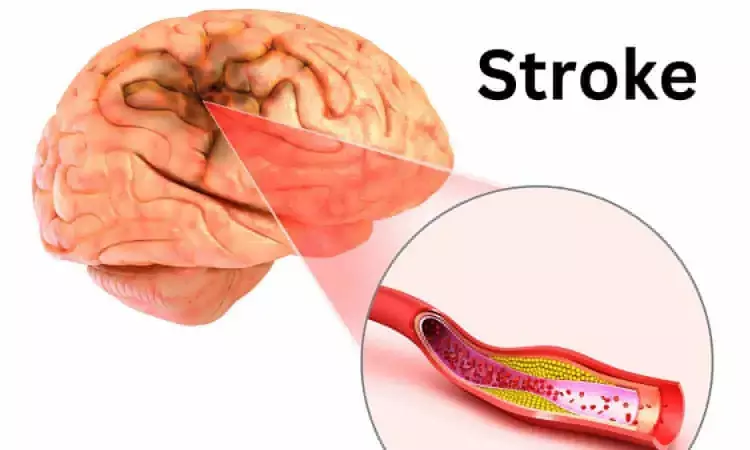- Home
- Medical news & Guidelines
- Anesthesiology
- Cardiology and CTVS
- Critical Care
- Dentistry
- Dermatology
- Diabetes and Endocrinology
- ENT
- Gastroenterology
- Medicine
- Nephrology
- Neurology
- Obstretics-Gynaecology
- Oncology
- Ophthalmology
- Orthopaedics
- Pediatrics-Neonatology
- Psychiatry
- Pulmonology
- Radiology
- Surgery
- Urology
- Laboratory Medicine
- Diet
- Nursing
- Paramedical
- Physiotherapy
- Health news
- Fact Check
- Bone Health Fact Check
- Brain Health Fact Check
- Cancer Related Fact Check
- Child Care Fact Check
- Dental and oral health fact check
- Diabetes and metabolic health fact check
- Diet and Nutrition Fact Check
- Eye and ENT Care Fact Check
- Fitness fact check
- Gut health fact check
- Heart health fact check
- Kidney health fact check
- Medical education fact check
- Men's health fact check
- Respiratory fact check
- Skin and hair care fact check
- Vaccine and Immunization fact check
- Women's health fact check
- AYUSH
- State News
- Andaman and Nicobar Islands
- Andhra Pradesh
- Arunachal Pradesh
- Assam
- Bihar
- Chandigarh
- Chattisgarh
- Dadra and Nagar Haveli
- Daman and Diu
- Delhi
- Goa
- Gujarat
- Haryana
- Himachal Pradesh
- Jammu & Kashmir
- Jharkhand
- Karnataka
- Kerala
- Ladakh
- Lakshadweep
- Madhya Pradesh
- Maharashtra
- Manipur
- Meghalaya
- Mizoram
- Nagaland
- Odisha
- Puducherry
- Punjab
- Rajasthan
- Sikkim
- Tamil Nadu
- Telangana
- Tripura
- Uttar Pradesh
- Uttrakhand
- West Bengal
- Medical Education
- Industry
Endovascular Thrombectomy may Yield Long-Term Benefits for Large Infarct Stroke Patients: Lancet

Researchers in a recent study indicated that endovascular thrombectomy offered long-term benefits to acute ischemic stroke patients having large vessel occlusion and large infarct. As per the 12-month follow-up analysis for the TENSION trial, prominent, lasting improvements in functional outcomes, quality of life, and overall survival were noted for acute ischemic attack patients due to large vessel occlusion. The findings were published in theResearchers in a recent study indicated that endovascular thrombectomy offered long-term benefits to acute ischemic stroke patients having large vessel occlusion and large infarct. As per the 12-month follow-up analysis for the TENSION trial, prominent, lasting improvements in functional outcomes, quality of life, and overall survival were noted for acute ischemic attack patients due to large vessel occlusion. The findings were published in the Lancet Neurology journal by Prof. Gotz Thomalla and colleagues.
The challenge persists in the management of chronic stroke, especially in patients with large infarcts. Endovascular thrombectomy had certain promising early results in recent studies, but long-term data has been scant. TENSION trailed this gap, examining for safety and effectiveness, up to 12 months, endovascular thrombectomy in patients with large infarcts.
The TENSION trial was an open-label, blinded endpoint randomized trial conducted in 40 hospitals in Europe and one in Canada. The patients were 18 years or older with acute ischemic anterior circulation stroke, large vessel occlusion identified by an Alberta Stroke Program Early Computed Tomographic Score of 3-5. Patients were randomly assigned to receive endovascular thrombectomy and medical treatment versus medical treatment alone within 12 hours of stroke onset.
The primary outcome was the functional outcome measured by the modified Rankin Scale at 90 days. The 12-month follow-up included assessments of functional outcome, quality of life (using PROMIS-10 and EQ-5D questionnaires), post-stroke anxiety and depression (using PHQ-4), and overall survival.
Results
The trial randomized 253 patients from July 17, 2018, to February 21, 2023, when it was stopped because of demonstrated efficacy. Of those, 125 (49%) received endovascular thrombectomy with 128 (51%) receiving medical treatment only. Median follow-up time was 8.36 months.
The key findings at 12 months were:
• On the modified Rankin Scale, endovascular thrombectomy showed better functional outcomes; the common odds ratio after adjustment was 2.39 with a 95% confidence interval of 1.47 to 3.90.
• Scores on quality of life were better in the thrombectomy group, with a median 0.7 EQ-5D index score and an IQR of 0.4 to 0.9, compared with 0.4, IQR 0.2-0.7, for those who had medical treatment.
• Health status on the EQ-5D visual analogue scale was 50 (IQR, 35-70) versus 30 (IQR, 5-60), and PROMIS-10 global physical health scores were 39.8 (IQR, 37.4-50.8) versus 37.4 (IQR, 32.4-44.9).
• There was no significant difference in global mental health scores on PROMIS-10 (41.1 [IQR, 36.3-48.3] vs. 38.8 [IQR, 31.3-44.7]).
• Anxiety and depression were reported by 22% and 31% of thrombectomy patients, respectively, compared to 42% and 50% in the medical treatment group.
• Survival was slightly better in the thrombectomy group, with an adjusted hazard ratio of 0.70 (95% CI, 0.50-0.99).
Results from the TENSION trial show that very long-term benefits of endovascular thrombectomy exist in patients with large infarcts from acute ischemic stroke. There were major improvements in functional and quality-of-life outcomes and survival, which underpin the use of thrombectomy in this patient group. However, no significant difference was observed in the mental health outcome, and it seems that further interventions might be needed in respect to anxiety and depression following a stroke.
Reference:
Dr Riya Dave has completed dentistry from Gujarat University in 2022. She is a dentist and accomplished medical and scientific writer known for her commitment to bridging the gap between clinical expertise and accessible healthcare information. She has been actively involved in writing blogs related to health and wellness.
Dr Kamal Kant Kohli-MBBS, DTCD- a chest specialist with more than 30 years of practice and a flair for writing clinical articles, Dr Kamal Kant Kohli joined Medical Dialogues as a Chief Editor of Medical News. Besides writing articles, as an editor, he proofreads and verifies all the medical content published on Medical Dialogues including those coming from journals, studies,medical conferences,guidelines etc. Email: drkohli@medicaldialogues.in. Contact no. 011-43720751


